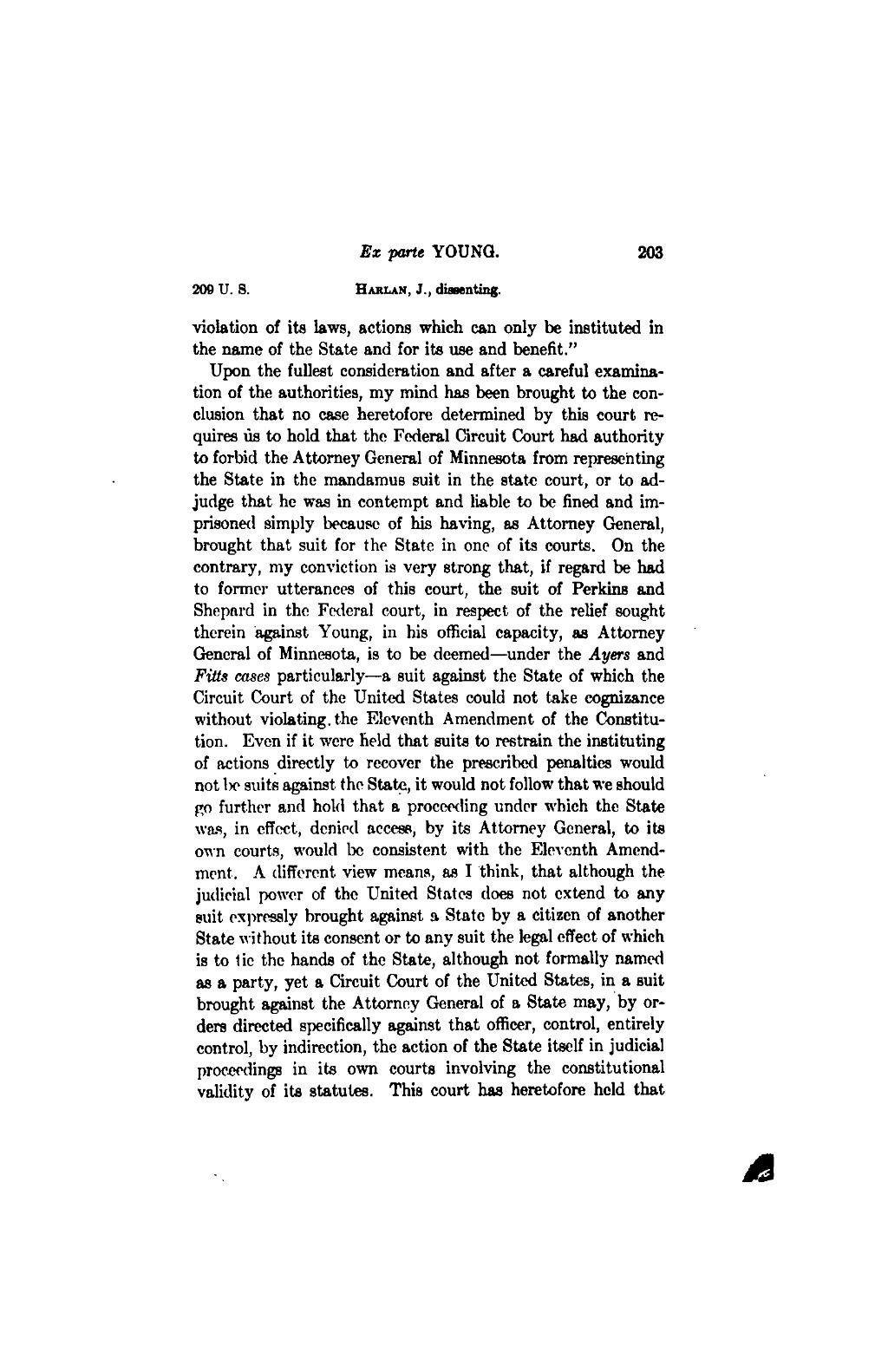209 U. S. H,tan?, J., dimenting. violation of its laws, actions which can only be instituted in the name of the State and for its use and benefit." Upon the fullest consideration and after a careful examina- tion of the authorities, my mind has been brought to the con- clnsion that no ease heretofore determined by this court re- quires fis to hold that the Federal Circuit Court had authority to forbid the Attorney General of Minnesota from represehting the State in the mandamus suit in the state court, or to ad- judge that he was in contempt and liable to be fined and im- prisoned simply because of his having, as Attorney General, brought that suit for the State in one of its courts. On the contrary, my conviction is very strong that, if regard be had to former utterances of this court, the suit of Perkins ?nd Shepard in the Federal court, in respect of the relief sought therein against Young, in his official capacity, as Attorney General of Minnesota, is to be deemed--under the AFers and Fitts cases partieularly--a suit against the State of which the Circuit Court of the United States could not take cognizance without violating. the Eleventh Amendment of the Constitu- tion. Even if it were field that suits to restrain the instituting of actions .directly to recover the prescribed penalties would not 1?, suits against the Stat9, it would not follow that we should go further and hold that a proceeding under which the State w?, in effect, denied access, by its Attorney General, to its own courts, would be consistent with the Eleventh Amend- ment.. A different view means, as I 'think, that although the judicial power of the United States does not extend to any suit exl?reesly brought against a State by a citizen of another State without its consent or to any suit the legal effect of which is to tic the hands of the State, although not formally named as a party, yet a Circuit Court of the United States, in a suit brought against the Attorney General of a State may, 'by or- ders directed specifically against that officer, control, entirely control, by indirection, the action of the State itself in judicial proceedings in its own courts involving the constitutional validity of its statutes. This court has heretofore hold that
�
